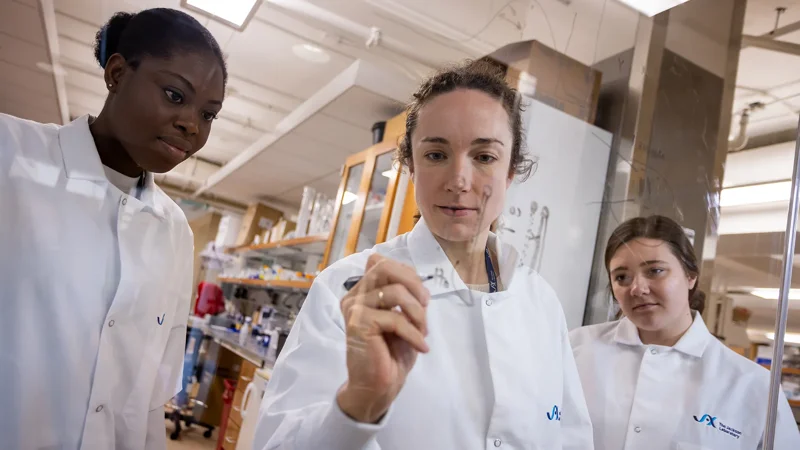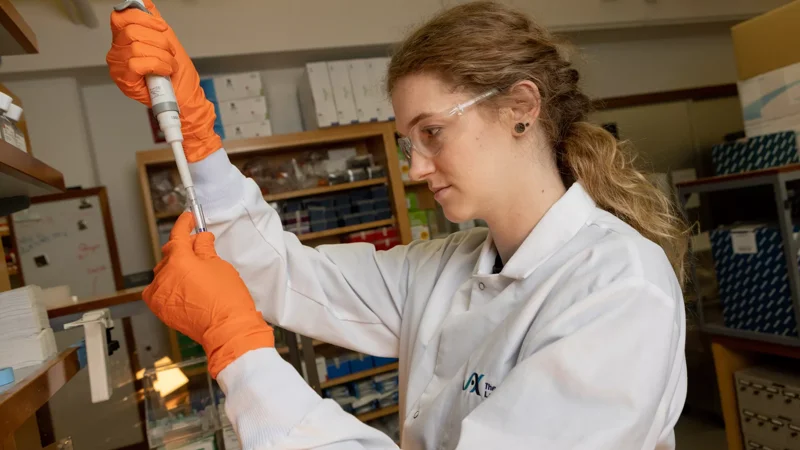
This two-year scientific training program allows you to undertake an independent research project and strengthen your professional and laboratory skills before pursing an M.D./Ph.D. or Ph.D.
Learn more
The Jackson Laboratory’s Cooperative Ph.D. Program provides training in mammalian genetics and genomic medicine through partnerships with degree-granting academic institutions.
Learn more
As a Postdoctoral Associate at The Jackson Laboratory, you can conduct cutting-edge research on the complex diseases impacting human health.
Angarola BL, Sharma S, Katiyar N, Kang HG, Nehar-Belaid D, Park S-H, Gott R, Eryilmaz GN, LaBarge MA, Palucka K, Chuang JH, Korstanje R, Ucar D, Anczukόw O. (2025). Comprehensive single-cell aging atlas of healthy mammary tissues reveals shared epigenetic and transcriptomic signatures of gaining and cancer. Nature Aging. 10.1038/s43587-024-00751-8.
Gosai SJ, Castro RI, Fuentes N, Butts JC, Mouri K, Alasoadura M, Kales S, Nguyen Til, Noche RR, Rao AS, Joy MT, Sabeti PC, Reilly SK, Tewhey R. (2024). Machine-guided design of cell-type-targeting cis-regulatory elements. Nature. 10.1038/s41586-024-08070-z.
Jung H,Paust S. (2024). Chemokines in the tumor microenvironment: implications for lung cancer and immunotherapy. Frontiers in Immunology. 10.3389/fimmu.2024.1443366.
Kursawe R, Bandesh K, Krishnan S, Liu K, Bhuiyan R, Stitzel M. (2025). From Human to Mouse and Back: Genetic and Genomic Ta(i)les of Islet Dysfunction in Type 2 Diabetes. Annual Review of Genetics. 59. 10.1146/annurev-genet-020525-114513.
Marola O, MacLean M, Cossette T, Diemler C, Hewes A, Reagan A, Kanyinda J, Skelly, D, Howell, G. (2025). Genetic context modulates aging and degeneration in the murine retina. Molecular Neurodegeneration. 20. 8. 10.1186/s13024-025-00800-9.
Pratt S, Zarate-Mendez M, Koludarova L, Jansson S, Airavaara M, Hlushchuk I, Coleman D, Heffner C, Horvath R, Battersby, B, Burgess R. (2025). Evaluating the feasibility of gene replacement strategies to treat MTRFR deficiency. Disease Models & Mechanisms. 18. 10.1242/dmm.052120.
Stay informed about research and training opportunities at JAX.